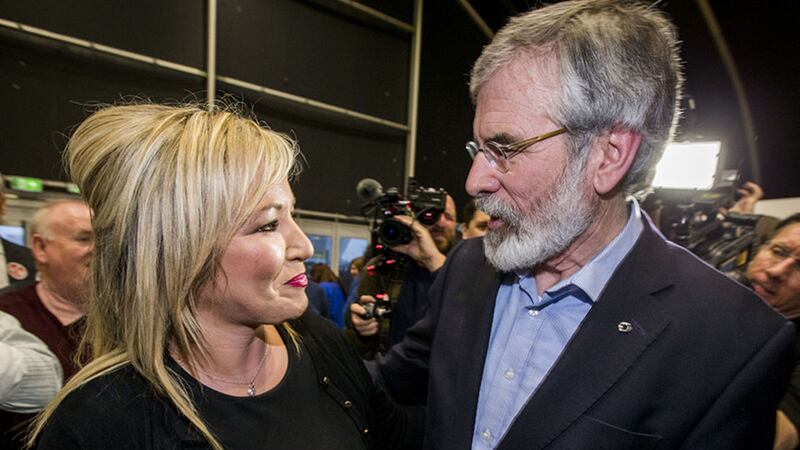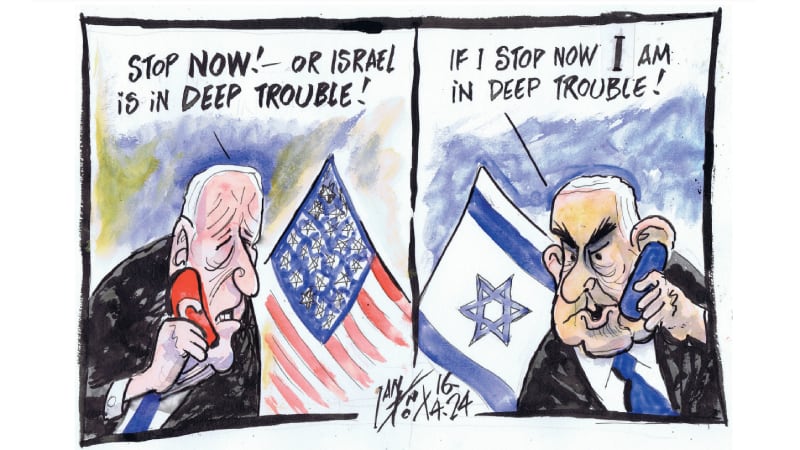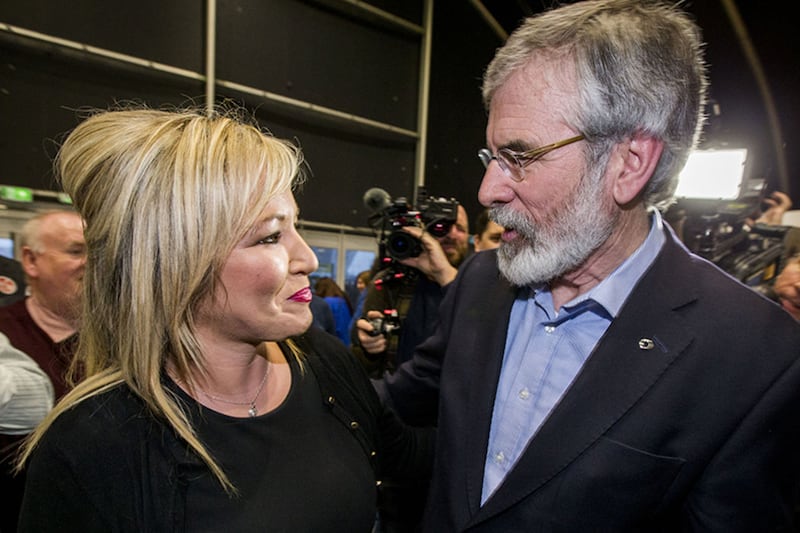OVER five decades ago Gerry Adams joined the Northern Ireland Civil Rights Association as an angry 19-year-old. On Saturday he will step down as Sinn Féin President after 35 years as party leader.
It is a journey whose impact will, no doubt, attract much ink in the weeks, months and years ahead.
Amidst that analysis and as the 69-year-old hands over the reins to new President, Mary Lou McDonald, only one thing remains certain.
The opinions of those watching on in the Republic will be much as they were when the Ballymurphy man rose to prominence via grainy black and white news bulletins and depressingly bleak radio broadcasts in the the 1970's and 1980's ... unambiguous and divided.
On the one hand Mr Adams is a brave peacemaker. The driving force behind a brand of republican socialism and activism which has delivered civil rights and equality in the north and a political transformation which has seen his party rise to become the largest Irish nationalist party on this island.
On the other he remains a machiavellian figure rooted in blood, a puppet master who sat atop an organisation who were, at best, active cheerleaders to an unnecessary slaughter of thousands of people north and south of the border and across the Irish sea.
It is clear, therefore, that the first draft of history has been unable to achieve any great consensus on Mr Adams and what his legacy should be.
As he steps aside from high political office perhaps it is time then to begin asking, in a more impartial fashion, what the final draft of history will make of it all.
As in all such assessments any attempt to make sense of the journey which Gerry Adams has travelled can only be attempted when it is placed in the context of his and our own modern history.
In his 2017 book - Wounds: A memoir of war and love - Kerry author and award winning BBC journalist Fergal Keane delivers a typically concise explanation of the antagonism with which Mr Adams and the wider northern republican movement was viewed.
In a compelling investigation into his wider family's links to the Irish revolution, Keane attempts also to understand the brutalities which Irish men and women inflicted upon each other in that period.
The Kerry author recalls how as a child in 1970’s Kerry he was struck by how people with clear familial links to IRA activism in the past were unflinching in their condemnation of the bearded provisionals - like Adams - who were overseeing the violence and carnage up North.
Keane suggests that in time and with a view to other conflicts covered in the course of his life he now feels this unflinching condemnation was rooted in an unconscious and uncomfortable reminder of the horror and brutality on which their own Irish Republic was founded.
In this context, and whether those living south of the border like it or not, it is clear any assessment of Gerry Adams, his political journey from bullet to ballet box and ultimately his political legacy, cannot be removed from the context of recent Irish history and its impact on him and many more like him.
In assessing the more recent antagonism to which many hold Mr Adams and his party, the final draft of history will also inevitably point to fear.
A type of fear not unique to Ireland and a type of fear which rises throughout the world - particularly in post conflict situations - in the face of any real or perceived challenges to the political and societal status quo.
A fear which in the years following the signing of the Good Friday Agreement in 1998 has seen a concerted determination by the established political parties south of the border not to go the way of the SDLP and the UUP in the north and be lost amidst a rising tide of electoral goodwill – no matter how warranted or unwarranted.
Fianna Fail and Fine Gael need no reminder, given the political landscape that emerged in post Irish civil war Ireland, that electoral goodwill flows almost exclusively towards those who are seen to win the peace.
Against this backdrop there has been a clear and perhaps fully understandable interrogation by the various pillars of state of Gerry Adams life and actions during the northern troubles.
The final draft of history may express sadness, however, that what should have been an interrogation aimed at bringing South African style closure to all sides via a peace and reconciliation process became instead a political witch hunt aimed primarily at electoral damage.
Much to the chagrin of those who led this campaign the final draft of history will also note, to use a prescient analogy, that it was with his own bolt cutters that Mr Adams cut the chains of high office.
Perhaps for the best clue as to how the final draft of history will judge Gerry Adams it is wise to look to those less encumbered with the inevitable prejudices that arise in those who live in a society afflicted by conflict and its consequences.
History will surely ask, therefore, why was Gerry Adams so reviled at home yet so revered abroad?
What, for example, will the final draft make of the fact that Adams was invited by the Mandela family to form part of the guard of honour at Madiba's funeral?
No doubt Mr Mandela and his family had noted the parallels in the lives of these 'terrorists turned peacemakers'. They are parallels which will not go unnoticed in the final draft of history.
* Dolan O'Hagan is the executive editor of the Cork based Irish Examiner with special responsibility for digital. He was born in South Africa but grew up in Derry City in the 1980's and 90's. He has worked as a journalist for the Derry Journal, Drogheda Independent, Dundalk Democrat and Irish Examiner.



